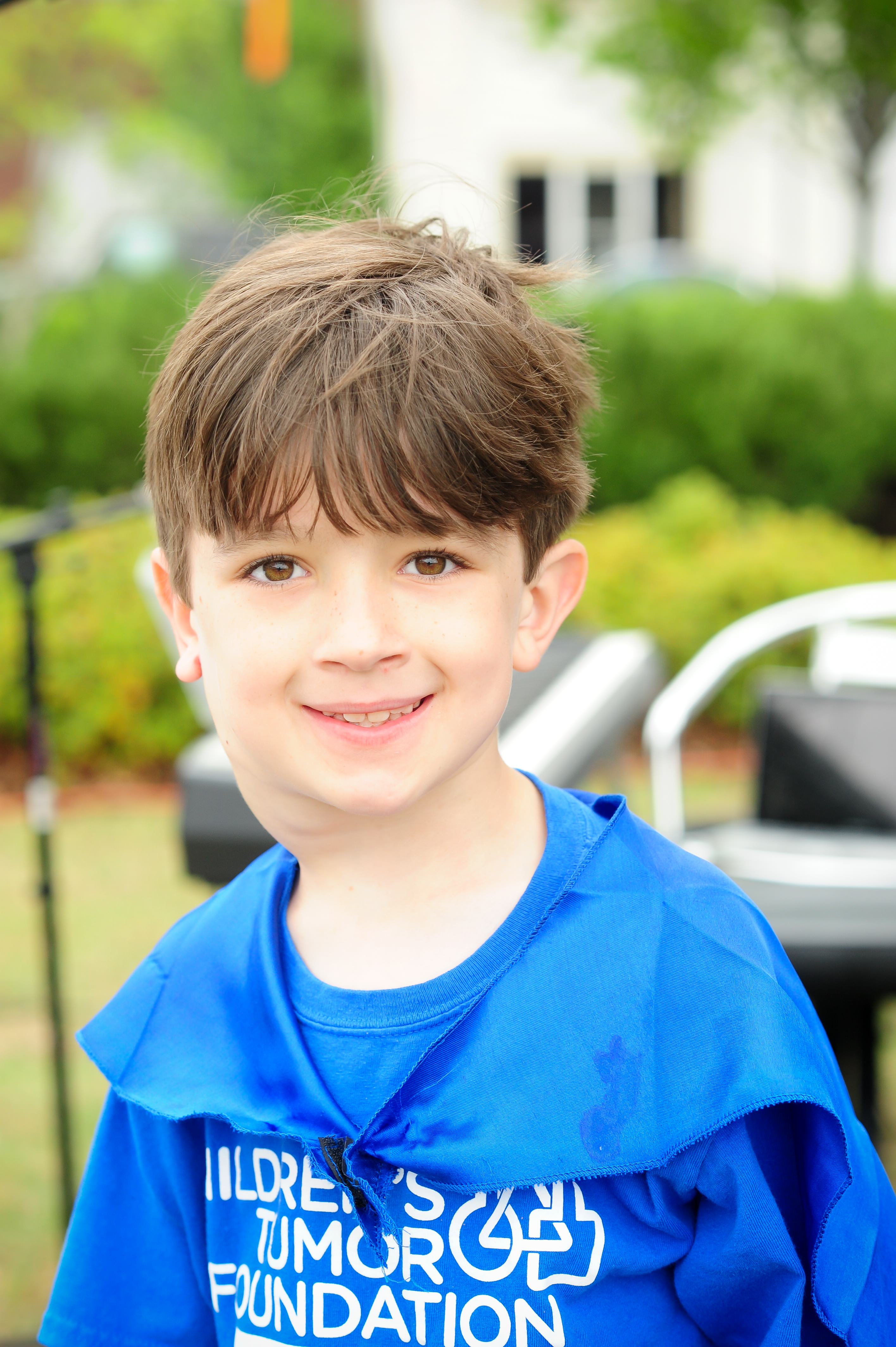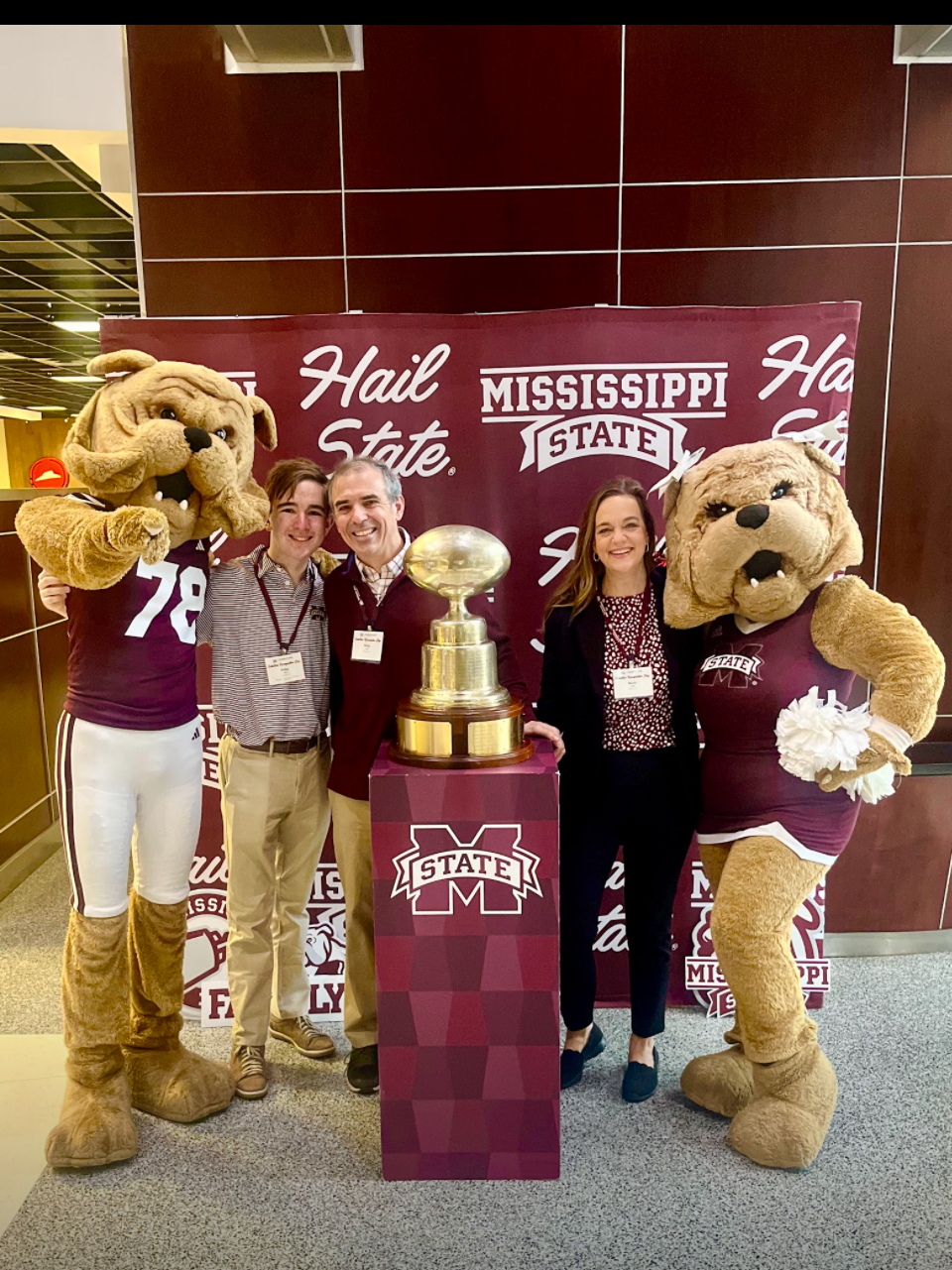
Navigating life with a rare disease like neurofibromatosis type 1 (NF1) can be challenging for families. We had the opportunity to connect with Renie and Philip Moss ahead of NF Awareness Month, and they shared experiences and insights from their NF1 journey.
Renie and Philip are a mother and son in Birmingham, Alabama. Renie recounted the initial shock of Philip's diagnosis at the age of six. It started with a bump on his neck that did not resolve with antibiotics. Subsequent biopsy confirmed it was a plexiform neurofibroma, a tumor that can be difficult to treat, especially given its location in Philip’s neck. He underwent genetic testing and was diagnosed with NF1, a condition occurring in appropriately 1 in 2,000 births.1 It is associated with many features but most often causes growths called neurofibromas that are usually benign, as well as characteristic skin and eye findings.2 Malignant or cancerous tumors are rare. NF1 is caused by a pathogenic variant or mutation in the NF1 gene. If someone has an NF1 mutation, there is a 50% chance for them to pass it to each child.
Though she had no apparent symptoms, Renie’s daughter was tested and also found to have the pathogenic variant in NF1. This is not unusual in families with NF1—symptoms can be quite variable from person to person. The family was advised that it was very likely that either Renie or her husband also had this pathogenic variant and therefore NF1. They grappled with the decision of whether to be tested. They were not planning to have more children, but it might be important for their own medical care. On the other hand, Renie and her husband knew there might be emotional challenges, such as the parent who tested positive experiencing guilt. Despite the potential emotional implications, they chose to undergo genetic testing, revealing that Renie's husband has NF1.
Renie describes herself as the "strong, practical one" and her husband as sensitive, with a master's in counseling. Testing positive and knowing that he passed the pathogenic variant to his children did and sometimes still does weigh on him. Renie stressed the importance of open communication and support in their family. She explained, “It’s something we work through every day and love and support each other, knowing that there’s nothing we did wrong. It’s the cards we’ve been dealt.”
Philip explained that he didn’t fully understand his diagnosis given his young age, but he has early memories of the procedures he had to undergo to monitor his tumor and to screen for additional findings. Renie shared that they had to find age-appropriate ways to help Philip understand. She said, “We wanted him to know that we got this. Mom and dad have a plan and have a great medical team on our side.”
Renie’s daughter and husband have had comparatively mild presentations of NF1. However, Renie emphasized that genetic conditions still impact the whole family, regardless of who has a diagnosis or experiences medical complications. She recommended that families in similar situations remember to make time for everyone and to “celebrate the good things and the unique things that each family member contributes.”
T oday, Philip is eighteen years old and getting ready to head off to college. He has participated in a clinical trial for a now FDA-approved therapy called a MEK inhibitor and seen great results. You can hear more about his experience with the clinical trial in the interview below. For more on that experience, read part two.
oday, Philip is eighteen years old and getting ready to head off to college. He has participated in a clinical trial for a now FDA-approved therapy called a MEK inhibitor and seen great results. You can hear more about his experience with the clinical trial in the interview below. For more on that experience, read part two.
Throughout their journey, the Moss family learned valuable lessons about managing emotions, accepting help, and finding joy amidst challenges. In one of the most poignant moments, Renie reflected on Philip's resilience and compassionate spirit, despite facing numerous medical procedures and challenges. His ability to find joy in serving others inspires them to navigate their rare disease journey with grace and optimism. Philip was recently honored with a young hero award by Alabama Public Television.
Renie and Philip shared advice for other families navigating a diagnosis of NF1 or another genetic condition:
1. Remember that our parents couldn’t control the genes passed to us, and we can’t control what we pass to our children. Give yourself and your partner grace through the genetic testing process and after.
2. Connect with a genetic counselor to learn about your risk, the genetic testing process, interpreting test results, medical management, and available resources. It can also be helpful to discuss the psychosocial challenges aspects with them. You can find a genetic counselor here.
3. If possible, find a center of excellence or build a healthcare team made up of experts on the condition in your family. Your genetic counselor can help with this.
4. Talk to your children and answer their questions at age-appropriate levels, being cognizant of the fact that a diagnosis affects the whole family—not just the ones with the condition. Consider getting help from a mental health professional as you navigate your own feelings and help your family navigate theirs. You can start your search for one here.
5. Don’t google, but if you do, remember that you might see the worst-case scenario first and most often. Always turn to the experts with your questions and concerns.
6. Accept help. It can be hard to do, but it is for your benefit and the benefit of your friends and family who want to be there for you.
7. Build a community with similar experiences that you can lean on and that can lean on you. The Moss family is very involved with the Children’s Tumor Foundation.
8. Prioritize building connections and a community that aren’t based on a shared diagnosis. This is just one part of your life.
Sources
1. Lee, T. J., Chopra, M., Kim, R. H., Parkin, P. C., & Barnett-Tapia, C. (2023). Incidence and prevalence of neurofibromatosis type 1 and 2: a systematic review and meta-analysis. Orphanet journal of rare diseases, 18(1), 292. https://doi.org/10.1186/s13023-023-02911-2
2. Friedman JM. Neurofibromatosis 1. 1998 Oct 2 [Updated 2022 Apr 21]. In: Adam MP, Feldman J, Mirzaa GM, et al., editors. GeneReviews® [Internet]. Seattle (WA): University of Washington, Seattle; 1993-2024. Available from: https://www.ncbi.nlm.nih.gov/books/NBK1109/



